Activities
Annual winter colloquium
"Planet Erde 3.0"
Interdisciplinary Lecture Series organized by the Alfried Krupp Wissenschaftskolleg Greifswald and the University of Greifswald that takes place every winter term.
The programme for 2023/2024 can be found here.
Programmes of past lecture series:
Winter term 2015/2016, Winter term 2016/2017, Winter term 2017/2018, Winter term 2018/2019, Winter term 2020/2021, Winter term 2021/2022 Winter term 2022/2023
Annual lecture on laboratory animals

This lecture series takes place every summer term and consists of 2 SWS (= 90 minutes per week during the semester) and5 days of practical course. Successful participation will result in a certificate according to the "FELASA" guidlines. More information can be found here.
Person in Charge:Prof. Dr. O. Grisk
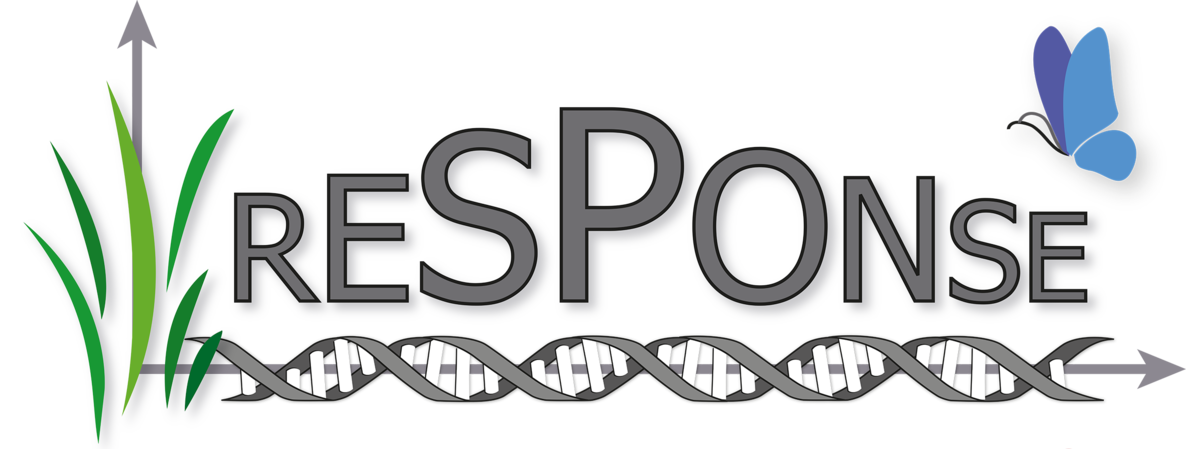
04.- 06.10.2023
Summer School
The Summer School will take place in Wooster Teerofen.
Persons in charge: G. Kerth, S. Räth
Past Activities

28.09.2022 - 30.09.2022, 04.10.2022
Summer School on Genetic Adaptation
The Summer School will take place in Lenzen (28.-30.09.2022) and Greifswald (04.10.2022).
Persons in charge: M. Bengtsson, M. Haase, M. Schnittler

05.04.2022 - 28.06.2022
Journal club on Genetic Adaptation
Tuesday 16.00, weekly for the time frame given above. The Journal Club will take place hybridly.
Persons in charge: M. Bengtsson, M. Haase, M. Schnittler

10.06.2021
Workshop "Good Scientific Practic"
This Workshop will take place digitally.
Persons in charge: Dr. Peter Schröder (brain4hire)
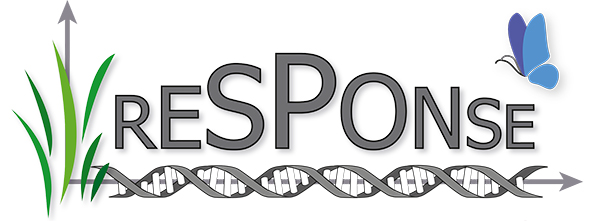
21.-23.09.2020
Summer School on Dispersal and landscape approaches
The summer school will take place in Greifswald.
External Guest Speakers: none
Persons in charge: M. Wilmking, G. Uhl, G. Kerth

07.-11.10.2019
Summer School on Genetic Adaptation
The summer school will take place on Hiddensee.
External Guest Speakers: S. Pekar (Brno), H. Kokko (Zürich), I. Blindow (Hiddensee)
Persons in charge: M. Haase, J.-P. Hildebrandt, K. Riedel, M. Schnittler

16.04.2019 - 11.06.2019
Journal club on genetic adaptation
12 hours per year; weekly for the time frame given above. The Journal Club will take place in Greifswald.
Persons in charge: M. Haase, J.-P. Hildebrandt, K. Riedel, M. Schnittler

07.02.2019
Workshop "Good Scientific Practic"
This Workshop will take place in Greifswald.
Persons in charge: M. Schöner, F. Scholz

10. - 11.09. 2018
Young Investigator Meeting
Poster Presentations at the 111th DZG Meeting in Greifswald
Persons in Charge: M. Schöner, Doctoral Students

27. - 28.07. and 10. - 11.09. 2018
Summer School on Phenotypic Plasticity
The summer school will take place in Greifswald.
Contents: Approaches to quantify phenotypic plasticity, modelling of population persistence by taking phenotypic plasticity into account.
External Guest Speakers: A. Bush (New Brunswick), M. Dammhahn (Potsdam), T. N. Kristensen (Aarhus), N. Scheepens (Tübingen)
Persons in charge: G. Kerth, J. Kreyling
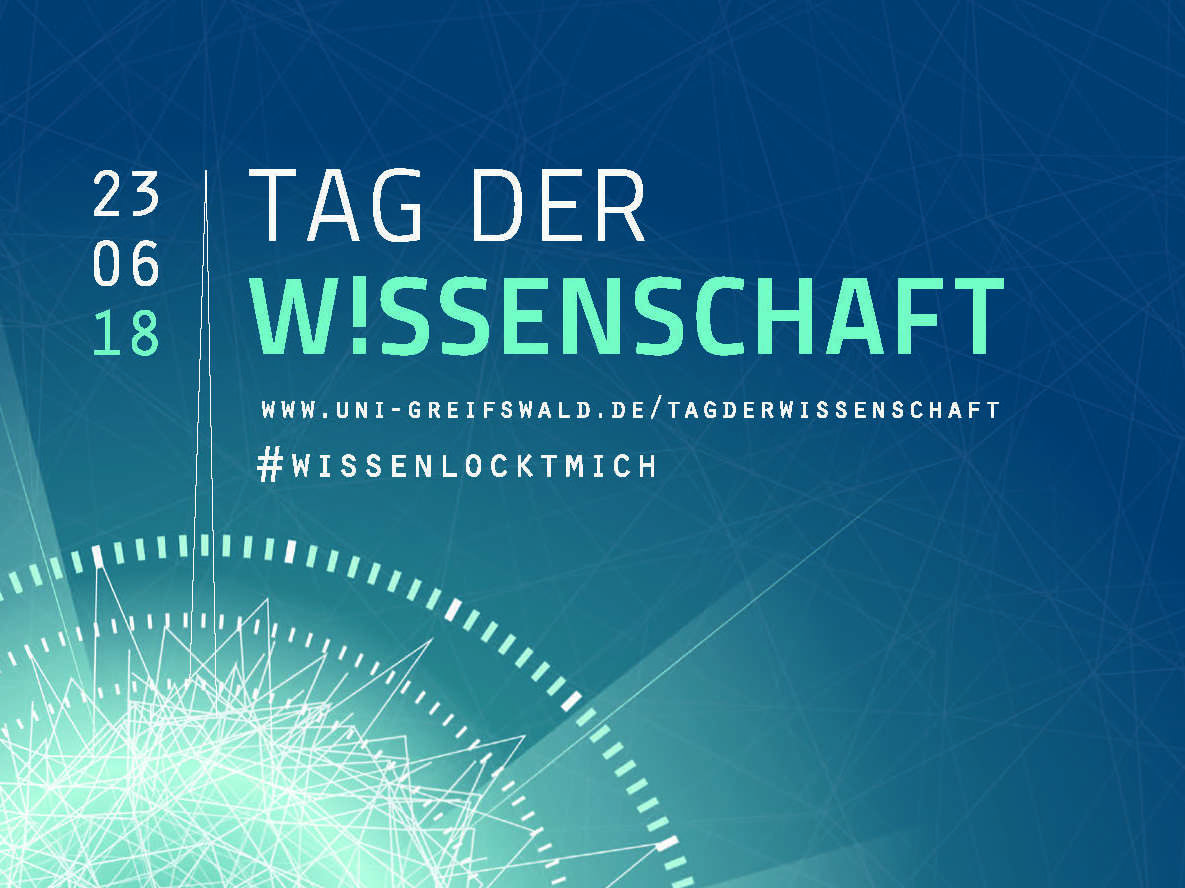
23.06.2018
Tag der Wissenschaft (Science Day)

29.05.2018 - 10.07.2018
Journal club on phenotypic plasticity
12 hours per year; weekly for the time frame given above. The Journal Club will take place in Greifswald.
Persons in charge: M. Haase, S. Harzsch, J. Kreyling
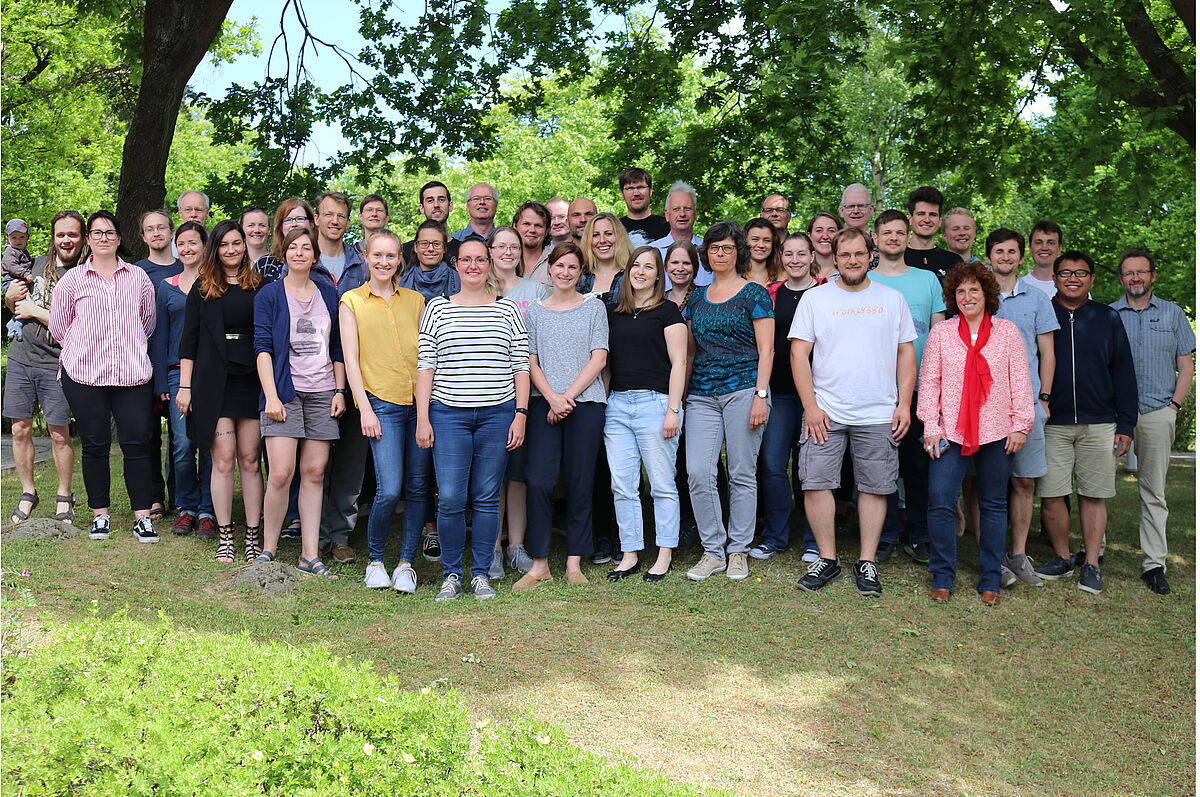
24. - 25.05.2018
Introductory Workshop 2018 at Zinnowitz
Talks on Lab-safety and data management.
External Guest Speakers: L.-M. Chevin (Montpellier), J. Ellers & O. Franken (both Amsterdam)
Persons in Charge: K. Fischer, G. Kerth, J. Kreyling, G. Uhl

24.04.2018
Workshop: Designing effective scientific posters
"Hands-on-Experience" in poster design and presentation in cooperation with the conference TRACE 2018
External Guest Speaker: E. Robert (Barcelona)
Person in Charge: M. Wilmking

03.04.2018
Welcome Meeting
October 17, 2017 - January 30, 2018: Planet Erde 3.0
Winter colloquium 2017/18: Interdisciplinary Lecture Series organized by the Alfried Krupp Wissenschaftskollegs and the Universität Greifswald (RESPONSE, ECRA)
September 3 - 8: Summer School in Obergurgl, Austria
July 3 - 7: Agent-based modelling, Prof. Frank Schweitzer, ETH Zurich
June 8: Kinderuni Greifswald
April - July: Journal Club on "Genetic Adaptation"
March 22: Workshop "Forschungsdatenmanagement", Dr. Tina Astor, Gesellschaft für Biologische Daten (GFBio)
March 21-22: Spring Retreat
February 23 - 24: Führungs-Follow-up für Wissenschaftlerinnen, Dr. Regina Pingel, organized by the Equal Opportunities Office (Gleichstellungsbüro) of the University of Greifswald, funded by RESPONSE
January 30 - 31: Workshop "Time Management", Dr. Dieta Kuchenbrandt, organized by the Equal Opportunities Office (Gleichstellungsbüro) of the University of Greifswald, funded by RESPONSE
January 17: How to successfully publish articles in international journals, Prof. Richard B. Primack
January 12 - 13: Workshop "Career Paths in and outside Academia", Dr. Dieta Kuchenbrandt, organized by the Equal Opportunities Office (Gleichstellungsbüro) of the University of Greifswald, funded by RESPONSE
November 25: Workshop "Rhetorics and Poster Presentation", Dr. Peter Schröder
November 21: Workshop "Intercultural Communication", Agnieszka Pietlicka, organized by the International Office
October 18, 2016 - January 24, 2017: Planet Erde 3.0
Winter colloquium 2016/17: Interdisciplinary Lecture Series organized by the Alfried Krupp Wissenschaftskollegs and the Universität Greifswald (RESPONSE, ECRA)
September 26-30: Summer school on "Dispersal", Wooster Teerofen
July 26 - 27: Workshop "Academic Writing", Lorraine Mannion, organized by the Graduate Academy Greifswald, funded by RESPONSE
July 17: Team building day with other graduate schools (BacRes and BiOx)
June 28: Lecture "Mit Kind und Koffer: Mobilität in der Wissenschaft", Agnieszka Pietlicka, part of the event "Woche der Vereinbarkeit", organized by the Equal Opportunities Office (Gleichstellungsbüro) of the University of Greifswald
June 16 - 17: Workshop "Writing and Publishing Research Articles", Dr. Philipp Mayer, organized by the RTG BacRes
June 15 - 17: Workshop "Metabarcoding", Martin Unterseher, organized by the Dept. for General and Special Botany
June 11: Open Science Day with a presentation of the graduate schools and a podium discussion on "How to become a scientist"
May 19 - 20: "Kinder-Uni", organized by the University of Greifswald
May 18 - 19: Workshop "Scientific Image Processing and Analysis", Dr. Jan Brocher (BioVoxxel), organized by the RTG BacRes, funded by the RTGs BacRes, BiOx, and RESPONSE
March 29 - June 28: Journal Club on "Dispersal"
March 15-18: Summer school on "Genetic Adaptation"
Das Graduiertenkolleg RESPONSE („Biological Responses to Novel and Changing Environments“; www.uni-greifswald.de/RESPONSE/) an der Universität Greifswald war Gastgeber des 21. Graduiertentreffens der Fachgruppe Evolutionsbiologie, welches in diesem Jahr als gemeinsames Treffen mit der Fachgruppe Ökologie ausgerichtet wurde. Die Organisation des Treffens lag in Händen von Klaus Fischer, Lisa Lehnen, Pierick Mouginot, Elisabeth Reimer, Michael Schöner und Amanda Wiesenthal. Die Veranstaltung begann am Abend des 06.03.2016 mit einer „Icebreaker-Party“ in der Jugendherberge Greifswald, welche regen Zuspruch fand und viel Gelegenheit zu ersten Gesprächen und gegenseitigem Kennerlernen bot.
Das wissenschaftliche Programm des Treffens startete am Morgen des 07.03.2016 und endete am 09.03.2016 um 12.00 Uhr. Schwerpunktthema der Veranstaltung waren „Responses to Environmental Change“. Zum Themenkomplex Lokalanpassungen hielt Prof. Luc de Meester (KU Leuven) einen exzellenten Hauptvortrag mit dem Titel „Rapid local genetic adaptation to environmental change and its impact on communities and ecosystems – water fleas in action“. Der zweite eingeladene Redner war Prof. Jean Clobert (CNRS Moulis), welcher einen ebenso hervorragenden Vortrag zum Thema „Dispersal, global warming and the pace of life“ präsentierte.
Mit insgesamt 106 Teilnehmerinnen und Teilnehmern von 24 verschiedenen Institutionen aus dem In- und Ausland war das Treffen ausgesprochen gut besucht. 28 Nachwuchswissenschaftler/innen nutzten die Gelegenheit, ihre Forschungen in Kurzvorträgen zu präsentieren. Hinzu kamen 18 Poster, welche während der Poster-Session am Montagabend ausgiebig studiert und diskutiert wurden. Bemerkenswert war das durchweg sehr hohe Niveau der Beiträge. Am Dienstagnachmittag bestand die Gelegenheit, an einer Exkursion teilzunehmen, was von ca. 50 Teilnehmenden wahrgenommen wurde. Wir besuchten zunächst das Kieshofer Moor, wo wir Seeadler und Kraniche beobachten konnten. Anschließend ging es weiter zur Boddenküste, wo sich viele verschiedene Wasservogelarten zeigten. Am Abend stand dann ein gemeinsames Abendessen in der Brasserie Hermann auf dem Programm.
Programm 21. Graduiertentreffen der DZG-Fachgruppen Evolutionsbiologie und Ökologie
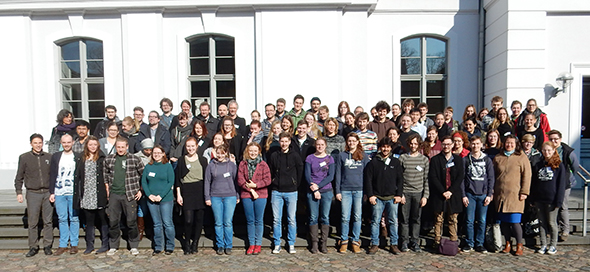
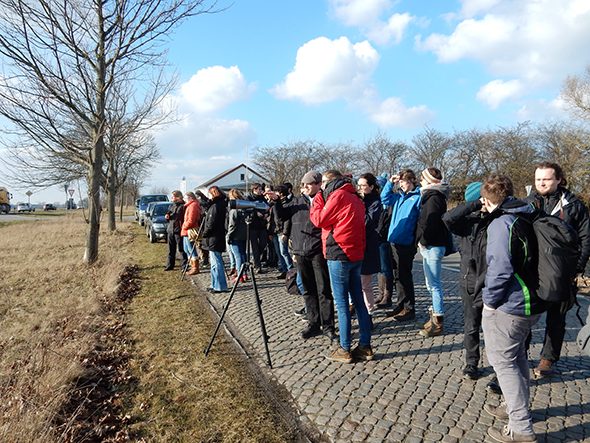
February 19: Open Science Day
January 27: "Ethovision" training course (organized by the Department for Animal Ecology)
January 11-12: Seminar "Academic career versus family? A workshop on career planning and reconciliation of family and work life", Dieta Kuchenbrandt
December 17: Workshop "Access and Benefit Sharing in basic research – how to comply with the new requirements" - Dr. Peter Giere (MfN, Berlin) and Dr. Cornelia Löhne (ZFMK, Bonn)
December 16: Christmas Party
October 22, 2015 - January 28, 2016: Winter colloquium 2015/16 "RESPONSEs to Environmental Change"
October 19: "Karriereentwicklung durch Forschungsförderung"/"Career Development through Research Funding" (Dr. Elijah Bleher), organized by KarriereWegeMentoring Wissenschaft M-V
First team building day of three graduate schools RESPONSE, BacRes and BioX.
Offizielle Pressemitteilung der Baltic Mariners:
Wer an sommerlichen Tagen regelmäßig im Elisenhain spazieren geht, der kennt das schon: ein lautes metallisches Bling gefolgt von frenetischem Jubel. Hier sind mal wieder die Baseballer von der HSG am Werk.
Aber diesen Samstag war alles etwas anders. Das Feld kleiner, der Ball größer und nur einige wenige Blau-Weiße tummelten sich zwischen einem bunten Haufen Sportbegeisterter. Was war da los?
Während andere sich in der Kneipe, beim Bowlen oder zum Dinner treffen, haben sich die DoktorandInnen der drei DFG Graduiertenkollegs BacRes, BiOx und Response (Universität Greifswald) dazu entschieden, einmal neue Wege zu beschreiten. Um sich für künftige gemeinsame Projekte besser kennenzulernen, entdeckten sie einen Tag lang eine unbekannte Sportart für sich. Viel Teamgeist war dabei gefragt.
Die Wahl fiel auf Baseball und somit die Greifswald Baltic Mariners, welche auch sofort bereit waren für die Interessierten einen Tag mit Softball, einer Breitensportvariante von Baseball, zu organisieren.
Spontan in Mixed Teams eingeteilt und nach einer kurzen Einführung in die wesentlichen Techniken und Regeln des Spiels, spielten die 20 Teilnehmer ein spannendes Turnier und konnten sich so mit der Sportart vertraut machen.
In insgesamt drei Spielen schlugen sich die DoktorandInnen wacker mit Keule und Handschuh und kürten die Sieger des Tages. Zum Abschluss wurden bei frisch Gegrilltem und kaltem Bier die Erfahrungen des Tages ausgetauscht und man war sich einig, dass dies nicht die letzte Veranstaltung dieser Art gewesen sein wird.
September 24: Introduction to R (Dr. Allan Buras), Lab building of the Zoological Institute and Museum, Soldmannstr. 14, Practical Training Room 1, ground floor, 9am-1pm
Topic: Phenotypic Plasticity
Date: 14-18 September 2015, Greifswald
Our RESPONSE Summer School (September 14th to 18th 2015) was a big success: During the five days of the “International Summer School on Phenotypic Plasticity” RESPONSE PhD candidates, associated doctoral researchers, and young scientists from other universities were able to broaden and deepen their knowledge on phenotypic plasticity.
On the first day the participants of the summer school were in the center of attention. On this Young Investigator’s Meeting the participants could present and discuss their research projects, the progress they made, but also the problems they were faced with, e.g., during their field work. One important experience was that many people were faced with similar problems but all were able to solve them. Most of the RESPONSE candidates will now start with the first data analyses, so the date for this Young Investigator’s Day and the whole Summer School seemed to be perfect. The audience was also very impressed by the talk of Dennis Meuthen who is conducting a PhD thesis about causes and consequences of antipredator phenotypic plasticity in a cichlid fish at the University of Bonn. Another guest, Rita Fragueira, came from Strasbourg to participate in the Summer School. A barbecue during which all participants and the invited speakers could get in contact and share their experiences completed the evening. Noteworthy, the program and the barbecue had mostly been organized by the PhD students themselves.
On Tuesday we were happy to introduce several experts in the field of Phenotypic Plasticity. The first keynote speaker was our spokesman Klaus Fischer who talked about “Adaptive phenotypic plasticity and plasticity as an adaptation”. Klaus Fischer started with a definition and a historical review of the term “phenotypic plasticity”. He also covered important issues such as how phenotypic plasticity corresponds to reaction norms, how it is induced, and whether these traits have to be seen as adaptive or as adaptations.
Robby Stoks from the Katholieke University of Leuven continued with a talk entitled “Evolutionary and plastic responses of freshwater invertebrates to climate change: realized patterns and future potential”. He gave a very interactive talk where different potential responses to climate change were presented and exemplified with case studies. Moreover, he introduced methods to determine genetic and plastic change.
After a lunch buffet Luis Gimenez and Gabriela Torres, two researchers from the Bangor University in Wales talked about “Phenotypic links in marine invertebrates”. Both are currently conducting research on the island of Helgoland where they use crustaceans as model systems to analyze maternal effects, developmental plasticity, and carry-over effects. Their talks provided us with deeper insights into the effects of environmental conditions on marine biology.
The highlight of the day was Fernando Valladares from the Museo Nacional de Ciencias Naturales, Spain, and his talk in which he raised the question “Why do not all plants exhibit maximal phenotypic plasticity”. Fernando Valladares talked about plasticity and acclimation, showed that it is not individuals but traits that are plastic, explained the global impacts of phenological changes, the limits and costs of plasticity, and what this means for ecological models.
In the evening we met at the restaurant “Fischer-Hütte” in Wieck, the old fishermen’s village of Greifswald.
During the next three days the participants of the summer school were trained in specific courses. The first course dealt with “Approaches to quantify phenotypic plasticity (calculations, indices)” and was held by Jürgen Kreyling, Sebastien Puechmaille & Fernando Valladares. On the second day Martin Haase taught the young researchers how to measure “Geometric Morphometrics” in theory and in the lab. In the evening we met in the restaurant “Alter Fritz”, which was at the same time the farewell party because on the next day Michaël Beualieu and Kristin Franke held the last course where the students learned methods for “Measuring protein expression” in theory and in practice.
We look back to a week of intensive training by which we gained a lot more knowledge. Once again we got to know each other better and could increase our social networks.
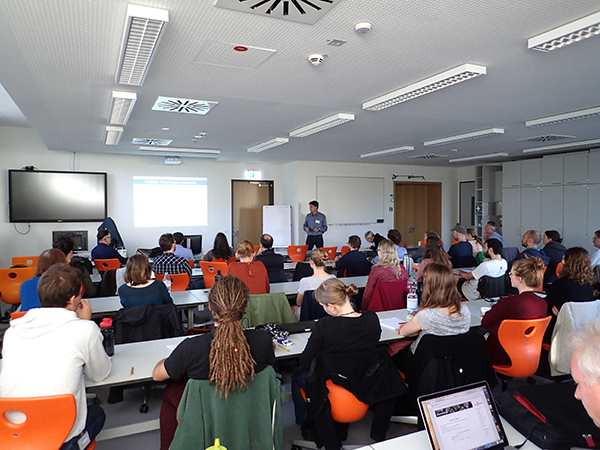
July 8-9: Introduction to R (Dr. Allan Buras), Lab building of the Zoological Institute and Museum, Soldmannstr. 14, Practical Training Room 1, ground floor, 9am-1pm
July 1: Transferable skill course "Good Scientific Practice", organzied by Gerhard Domagk Nachwuchsförderprogramm. Lecturer: P. Schröder, Person in Charge: M. Halle (DP)
June 15: Transferable skill course" Research Management".Lecturer: Katja Wolter (Rostock), Person in Charge: M. Schöner
May 12 - July 14: Journal Club on "Phenotypic Plasticity"
May 5: Official opening of RESPONSE
From Sunday, 26th until Tuesday, 28th April, 2015 our first RESPONSE Introductory Workshop took place in Haus Kranich, Zinnowitz on the island of Usedom. With 35 participants, including all doctoral researchers, four associated doctoral researchers, all PIs and most of the Co-PIs we had a very successful and constructive meeting. Additionally, the invited guest speakers Luis-Miguel Chevin, University Montpellier, and Jacintha Ellers with her PhD student Oscar Franken, both University Amsterdam, joint this workshop.
The workshop started with a cordial welcome by the spokesperson Klaus Fischer. Afterwards, the coordinator Michael Schöner introduced the city of Greifswald and the Ernst-Moritz-Arndt University to the audience and Klaus Fischer gave a talk on causes and consequences of environmental change. The highlight of the first day was the talk of Jacintha Ellers about trait plasticity in species interactions and the driving force of plasticity for community dynamics under global warming. The end of the official part of this first day was another talk of Klaus Fischer who this time presented the aims and organization of the GRK 2010 RESPONSE. The evening ended with an Icebreaker Party where all participants used the opportunity to get to know each other better.
The second day of the workshop was divided into two parts. During the morning session Gabriele Uhl gave an overview about statistics, which was complemented by Jürgen Kreyling’s talk how to design experiments and a presentation of Martin Schnittler about data handling with Microsoft Excel. Sébastien Puechmaille completed this methodological introduction with a presentation on data archiving and analyses especially with R. After the lunch break all doctoral researchers of Cluster A (genetic adaptation, phenotypic plasticity) presented and discussed the aims and scope of their research projects. The invited speaker Luis-Miguel Chevin finally talked about adaptation, plasticity and extinction in a changing world. The evening became quite sportive with a table tennis tournament. However, to “Beat the Silverbacks” was more difficult for the young researchers than they initially had thought and in the end Gerald Kerth won the match.
On the last day the doctoral researchers (this time of Cluster B: Migration) continued to present their research proposals. In the afternoon Christian Müller and Gerald Kerth talked about safety rules during lab and field work and Christian Müller gave another talk about the legal and ethical instructions on animal experiments. Finally, Jacintha Ellers, Gerlien Verhaegen and Mario Trouillier were elected for the executive board of RESPONSE.
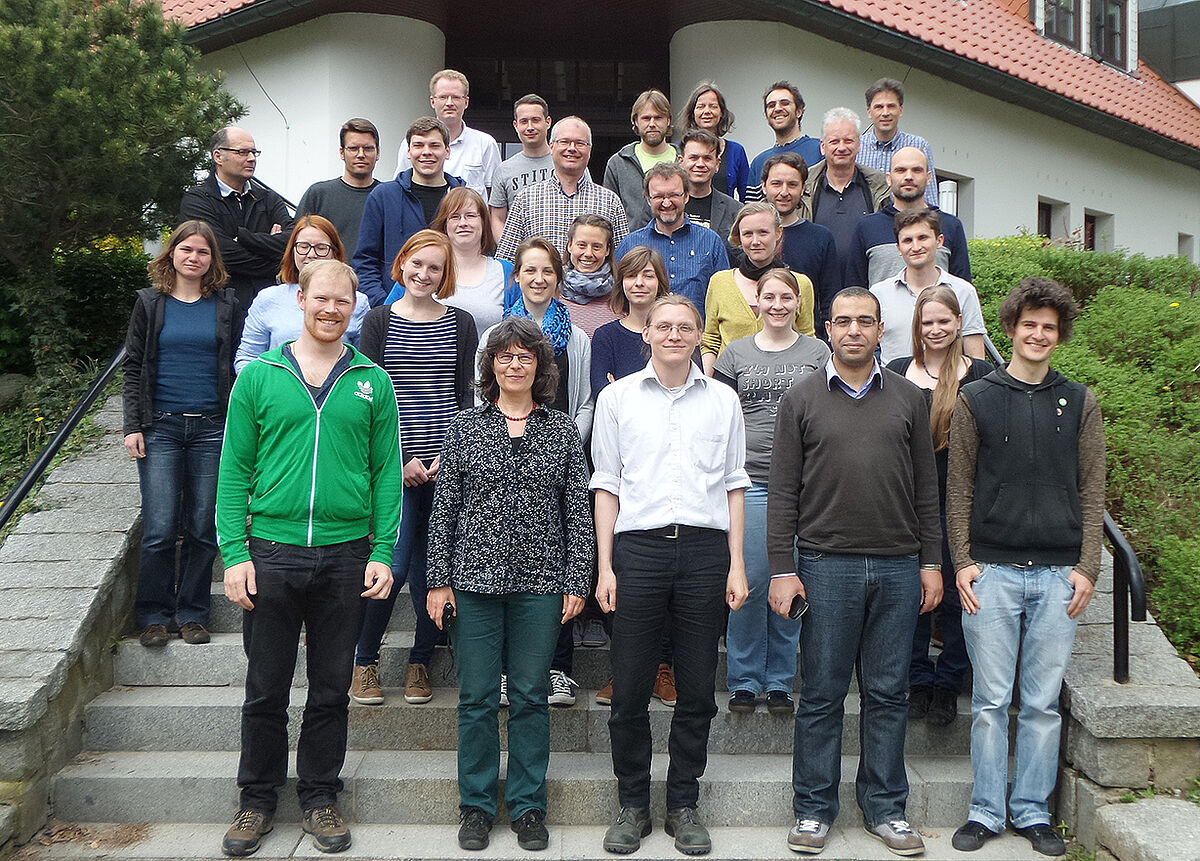
April 14, 4 p.m.: Meeting to prepare journal club, distributing papers.
April 7, 7 p.m.: Meet the coordinator!
February 3: Transferable Skill Course "self and time management". Lecturer: E. Magyarosi. Person in Charge: A. Lenz
